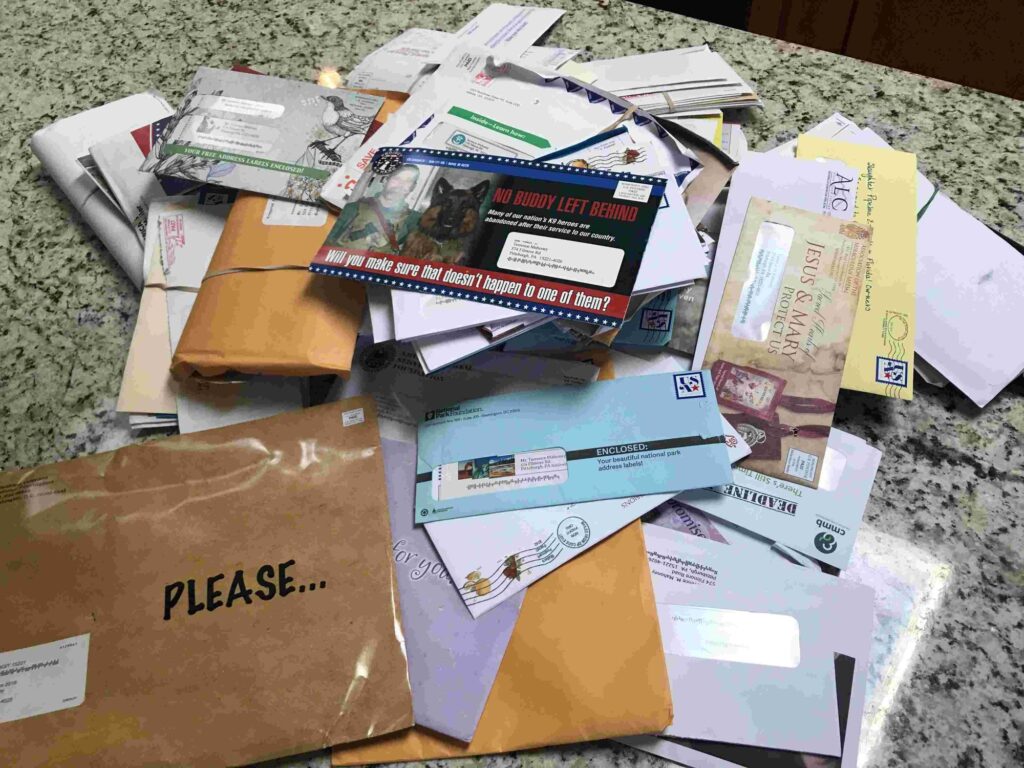(AUTHOR’S NOTE: I originally wrote this five years ago, but I never did anything with it. It just felt good to get my thoughts and feelings out on paper. My dad died in April and recently there has been news of medical research indicating that the first, often undetected, sign of cognitive decline related to dementia and Alzheimer’s disease is questionable financial decisions made years in advance of any medical diagnosis.)
I have worked as a professional fundraiser for more than 26 years; it is a profession I fell into but one that I have found to be incredibly rewarding. I am proud of the impact my work has had on my local community. I can point out buildings that I helped secure funding for, I can take my children to local cultural sites and say I had a part in their sustainability, and I can take comfort in knowing that my work has helped nonprofit organizations continue to provide their essential services for countless friends and strangers. But recently I had the eye-opening experience of a different kind of fundraising.
My father was diagnosed last year with “decreased cognitive capacity”, he is 83.
Through the process of taking over his finances, my siblings and I discovered that he had been making a number of small charitable gifts in response to various appeal letters. And, as he made a few gifts, his name somehow was put on a multitude of lists. As a result, he was getting an astronomical number of letters daily from organizations that he would have never supported had he fully understood. It was like someone put a flag by his name in some computer somewhere that said, “This guy is vulnerable, and he gives money, so let’s all take advantage of him.”
My brother took over the checkbook, so the gifts stopped (they were not helping decrease his tax obligations, as he mistakenly believed). My mom said she would just throw the mail out, but I thought that was wasteful and unfair to the charities…. until I started collecting all his mail.
Don’t worry about using plastic straws – the environmental impact of these wasteful mailings has to be astronomical.
Disabled American Veterans and the Disabled Veterans National Foundation and American Veterans National Service Foundation — are they the same organizations or different ones? My dad got mailings from all of them and while he is a veteran, I don’t believe he would have supported any of them.
I tried to get his name removed from the mailing lists, but that was not easy. Many times there was no way to contact the organization – no phone number and no contact form or email on their webpage – no way to opt out. The majority had no phone number on the mailing. Any information found on the mailing was in very small text in a document that was clearly targeting an older person. In one case, the fine print indicated they would share my address unless I told them in writing that they could not share it; further, to be removed also required written notification mailed to them….but my father never gave them his permission in the first place.
Project K-9 Hero? Peaceful Valley Donkey Rescue? Organizations in Texas, New Hampshire, California. He never had an interest, affiliation or connection to these organizations. How did they get his name? Why were they mailing to him so frequently? And why with such urgency?
When reached, most organizations indicated an inability to remove names for 60 to 90 days, sometimes as long as four months because mailings are prepared so far in advance. Apparently, requests for removal from mailing lists are so frequent that many of those I was able to reach by phone included it as an option in their automated voice menu.
There has been such a big push for locally sourced food – and rightfully so. But how about locally sourced philanthropy? Please, give locally, where you can see your investment in action. Don’t support organizations that don’t make it easy to talk to a person, that make it next to impossible to remove your name from their mailing list. Giving should be personal, know who you are giving to, and if you feel pressured by fundraising strategies, don’t give.
I have practiced throughout my career to be donor-focused in my work; the only philosophy behind these unethical practices seems to be dollar-focused.
I know the reason organizations choose to utilize this kind of mailing process to secure donations, because it works…. but at what cost?
I’m a big believer in the power of philanthropy, and I do not want to discourage people from giving to worthy organizations. But let’s make sure the act of giving is intentional, with donors fully informed about the organizations they are supporting.


Such helpful thoughts, Maureen. I went through something similar with my Mom, whose religious beliefs made her a frequent, generous giver. She had her missions and charities she gave to, but then as she got older, she started giving to new groups. Somehow if they wrote her a letter, she thought they deserved a gift. There are so many needs . . . .
What I really appreciate about what you wrote was the distinction you made between local philanthropy and the faceless (person-less?) letters that come from who knows where. Many people decry the waste of mailing paper, yet I’ve know that direct mail works, so I’ve often tried to defend the practice. But to hear “even you” complain about the waste of mail from unknown groups helped me to realize that there is a distinction to be made. I still give occasionally to one national organization, but more and more, I’ve made my giving local where, as you say, I know the people, the organizations, and their work. And I can contact them.
The post also made me think of a potential nonprofit business. A few years ago, I decided to do something about all the catalogs I got in the mail. (same idea of names being sold to other companies) There’s a group called CatalogChoice that you can sign up with, giving them the names of companies that you want to stop sending their catalogs. They do the work of contacting the companies — because it’s time-consuming, and sometimes you have to do some digging to find out how to unsubscribe. The same sort of model might work for direct mail — although perhaps there are too many that have no point of contact so attempts to stop mail might be fruitless. But this could be a boon for philanthropy and the environment.
Laurie,
Thanks for sharing your thoughts and ideas. I definitely think you have a good business idea, but I won’t want to take it on, my experience trying to get my Dad off of mailing lists was incredibly frustrating. I get so disappointed when I read the local obituaries and so many families encourage gifts in lieu of flowers to national charities that have no impact locally. I am a big proponent of local philantropy! Maureen